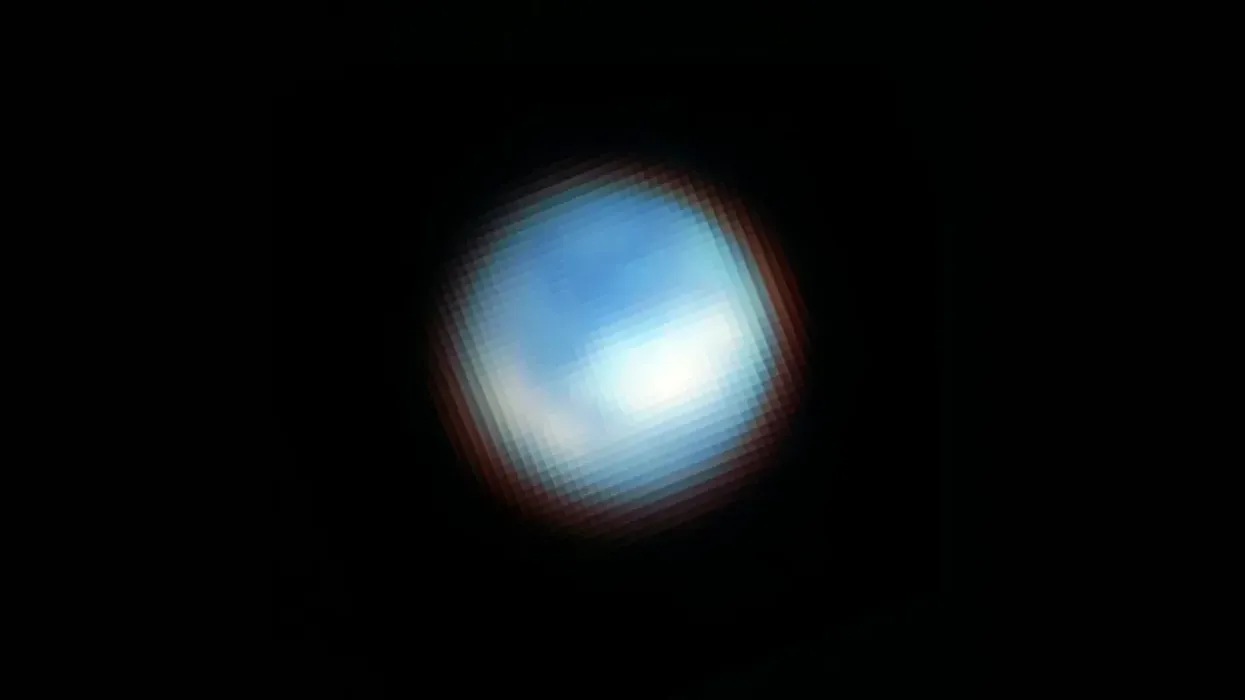Alex Daniel
Sep 24, 2023

A Near Infrared Camera shot detecting carbon dioxide on Europa
NASA, ESA, CSA, G. Villanueva (NASA/GSFC), S. Trumbo (Cornell Univ.), A. Pagan (STScI))
Scientists have spotted carbon dioxide on one of Jupiter’s moons – a sign which increases the likelihood that life could be found on the icy mass.
Carbon dioxide is one of the vital elements for living things, while Europa, the moon in question, has long been thought to be one of the most likely places in the solar system to find alien life forms.
The James Webb Space Telescope spotted the CO2 originating from the salty liquid oceans on Europa.
Geronimo Villanueva, a scientist at NASA's Goddard Space Flight Centre, said: “On Earth, life likes chemical diversity — the more diversity, the better.
"We're carbon-based life.
"Understanding the chemistry of Europa's ocean will help us determine whether it's hostile to life as we know it or whether it might be a good place for life.”
“This suggests that we may be able to learn some basic things about the ocean’s composition even before we drill through the ice to get the full picture.”
Samantha Trumbo, from Cornell University, added: “We now think that we have observational evidence that the carbon we see on Europa’s surface came from the ocean. That's not a trivial thing.
“Carbon is a biologically essential element.”
It comes weeks after NASA chief Bill Nelson said he believes there is life somewhere out in the universe.
Trumbo explained why the latest finding is significant.
“Previous observations from the Hubble Space Telescope show evidence for ocean-derived salt in Tara Regio [an area of Europa].
“Now we’re seeing that carbon dioxide is heavily concentrated there as well.
“We think this implies that the carbon probably has its ultimate origin in the internal ocean.”
The research was published in two papers in the journal Science.
Sign up to our free Indy100 weekly newsletter
Have your say in our news democracy. Click the upvote icon at the top of the page to help raise this article through the indy100 rankings.
Top 100
The Conversation (0)













